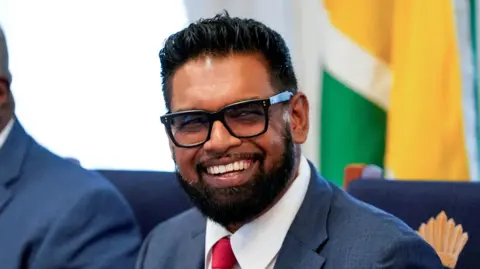In a tragic unfolding, Reinaldo Araujo, a prominent Venezuelan opposition leader and a member of the Vente Venezuela party, has died while in custody, prompting widespread outcry against the Nicolás Maduro regime. Araujo had been arrested on January 9 during protests intended to challenge Maduro's controversial reelection. His wife reports that Araujo suffered from significant health issues that went untreated during his imprisonment, leading to his untimely demise.
María Corina Machado, leader of Vente Venezuela, has publicly blamed the Maduro administration for Araujo's death, aligning it with the regime's long history of alleged human rights violations. The Venezuelan Prison Observatory, a non-governmental organization, has documented that at least 20 political prisoners have died in custody in recent years.
The circumstances surrounding Araujo's arrest raised alarms; he was reportedly taken by masked agents while merely observing the protests following a medical appointment. Despite warnings from his wife regarding his declining health, the authorities reportedly did not act until it was too late.
Luis Almagro, the head of the Organization of American States (OAS), expressed his outrage, labeling Araujo’s death as a "new atrocity of the regime," while advocating against political imprisonment and violence. This incident adds to the ongoing strife regarding Venezuela's political climate, particularly following the contested presidential elections where Maduro was declared victor by a government-aligned electoral body, a result the opposition and international observers have rejected.
As protests sparked in the heat of Araujo's arrest, other opposition members were similarly targeted, including the son-in-law of Edmundo González, a candidate claiming rightful leadership against Maduro, who remains in exile. González’s spokeswoman reported an absence of information regarding her husband’s fate since his detention.
The death of Reinaldo Araujo has once again shone a spotlight on Venezuela's troubling human rights situation and the treatment of political dissidents within its prison system.
María Corina Machado, leader of Vente Venezuela, has publicly blamed the Maduro administration for Araujo's death, aligning it with the regime's long history of alleged human rights violations. The Venezuelan Prison Observatory, a non-governmental organization, has documented that at least 20 political prisoners have died in custody in recent years.
The circumstances surrounding Araujo's arrest raised alarms; he was reportedly taken by masked agents while merely observing the protests following a medical appointment. Despite warnings from his wife regarding his declining health, the authorities reportedly did not act until it was too late.
Luis Almagro, the head of the Organization of American States (OAS), expressed his outrage, labeling Araujo’s death as a "new atrocity of the regime," while advocating against political imprisonment and violence. This incident adds to the ongoing strife regarding Venezuela's political climate, particularly following the contested presidential elections where Maduro was declared victor by a government-aligned electoral body, a result the opposition and international observers have rejected.
As protests sparked in the heat of Araujo's arrest, other opposition members were similarly targeted, including the son-in-law of Edmundo González, a candidate claiming rightful leadership against Maduro, who remains in exile. González’s spokeswoman reported an absence of information regarding her husband’s fate since his detention.
The death of Reinaldo Araujo has once again shone a spotlight on Venezuela's troubling human rights situation and the treatment of political dissidents within its prison system.





















